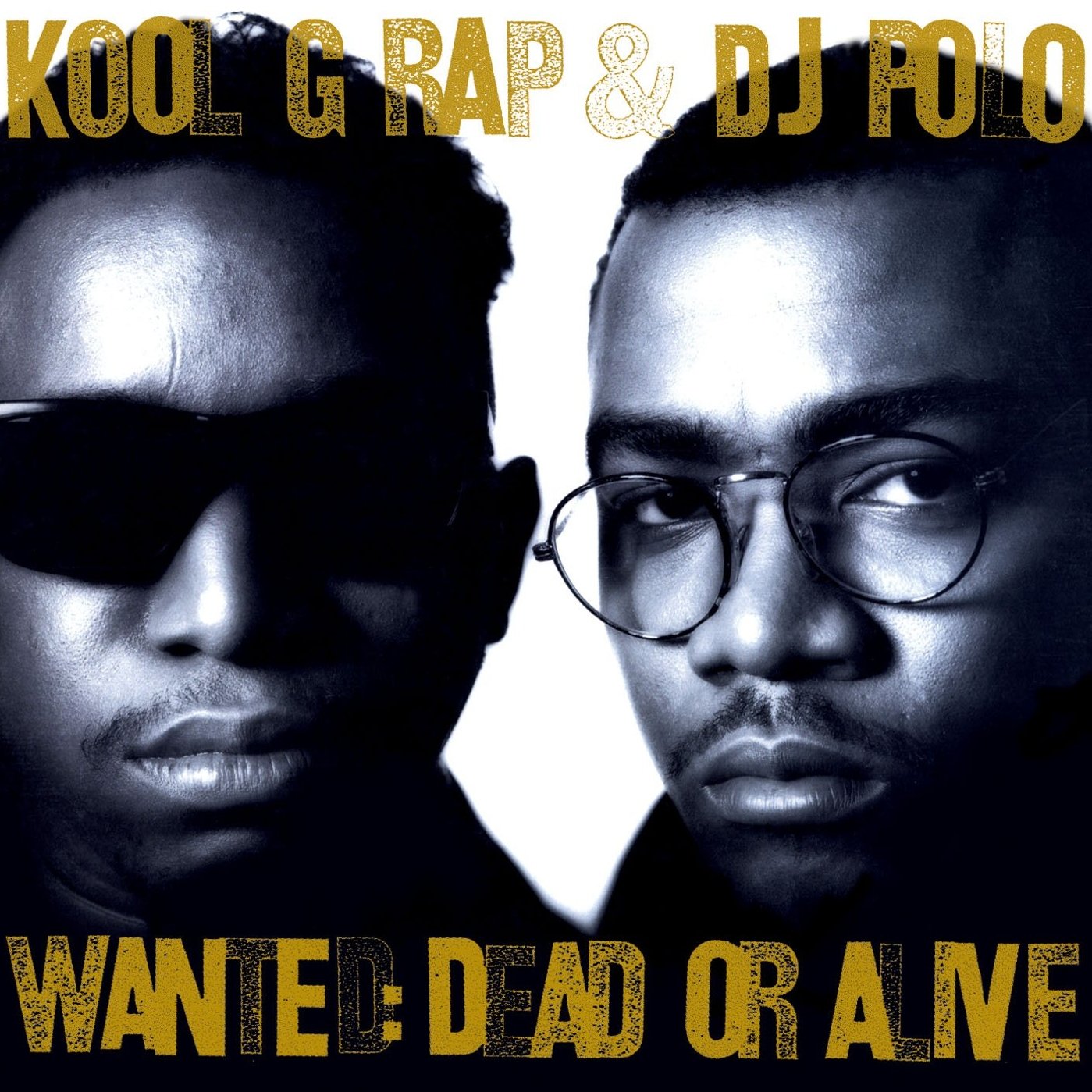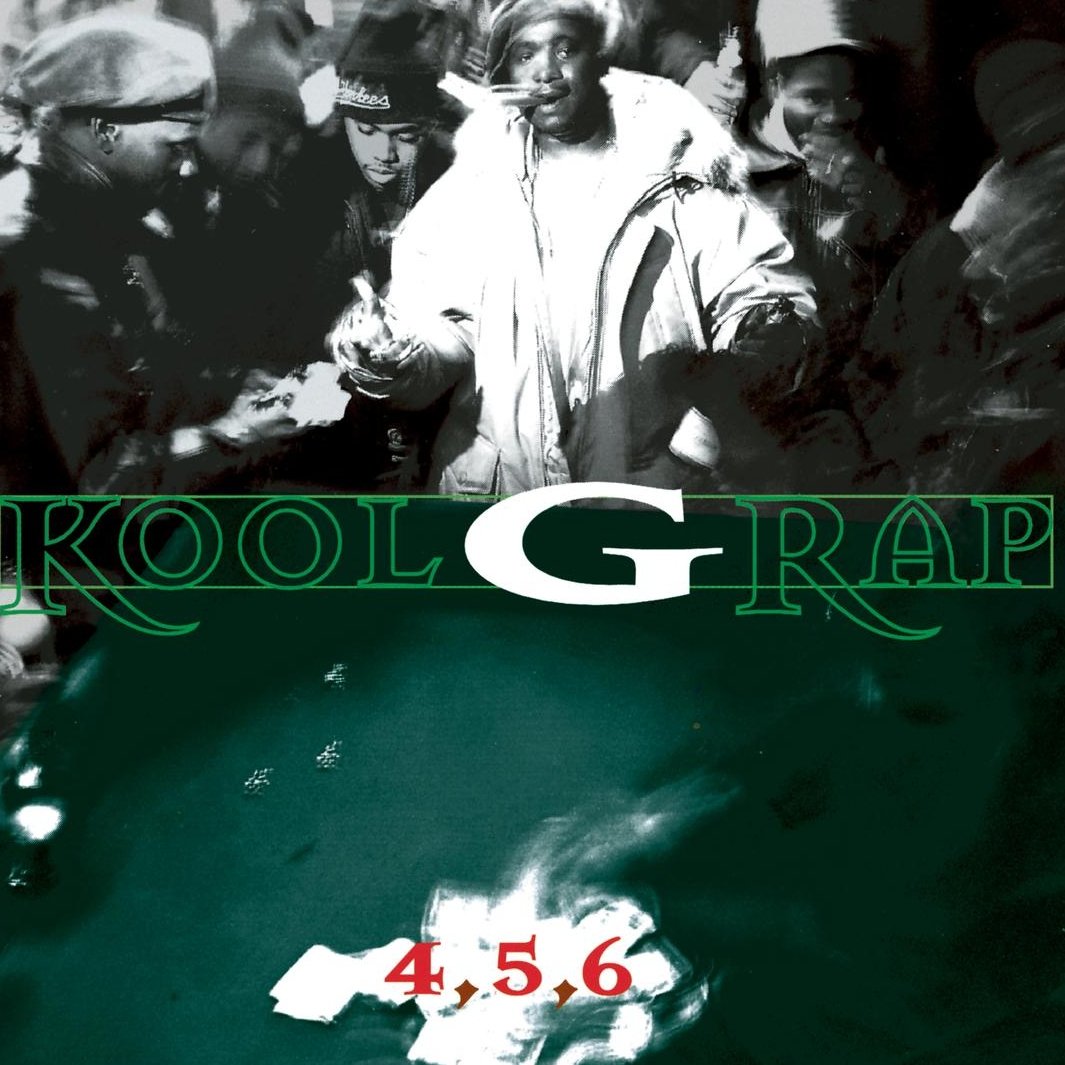Happy 35th Anniversary to Kool G Rap & DJ Polo’s debut album Road to the Riches, originally released March 14, 1989.
Hip-Hop had never heard an emcee like Nathaniel “Kool G Rap” Wilson before his voice was first inscribed on vinyl. Even in 1986, when the Cold Chillin’ label released his first 12-inch single “It’s a Demo,” true lyricists were not in short supply, but G Rap was immediately recognized as something special. He spit rapid-fire rhymes through a thick lisp, and was one of the first that emcees who used his voice like a weapon. Over the next few years, he recorded material that found him rhyming with the force of a battering ram, while still wielding his tongue like a scalpel, moving with amazing precision. The culmination came with the release of Road to the Riches 35 years ago, his debut project with Thomas “DJ Polo” Pough.
Queens, New York natives Kool G Rap and Polo were among the first artists signed to Cold Chillin’ Records and members of the legendary Juice Crew, helmed by super-producer Marley Marl. Kool G Rap and Polo had met each other through various shows throughout Queens, and Polo brought G Rap to his longtime friend Marley to first record music. They recorded “It’s a Demo” in Marley’s living room, and it became the second single ever released on Cold Chillin.’
Among a loaded Juice Crew squad that included Big Daddy Kane, Craig G, and Masta Ace, Kool G Rap stood out, and is now considered one of the greatest lyricists of all time. He was one of the central influences to many of the others who now populate the “best ever” conversation, such as Nas, Jay-Z, Black Thought, The Notorious B.I.G., Big Pun, and Raekwon. By the time Road to the Riches dropped, G Rap was already a known quantity, through successful singles and landmark guest appearances; his verse on Marley Marl’s “The Symphony” was already legendary. The debut album further suggested G Rap would be a potent verbal force for years to come.
By all accounts, G Rap made an effort to not just spotlight himself on Road to the Riches, but also gave frequent respect to his musical partner DJ Polo, name-checking him throughout the album. There is not one, but two DJ-centered tracks on Road to the Riches, because that’s the type of thing rap artists did three-and-a-half decades ago.
Marley Marl is another star of the album, as it’s probably his most expertly produced project during that era. G Rap has said that he brought Marley nearly all the records for him to sample, as well as ideas for how to use them. “The only thing I didn’t do was press the buttons,” he told Complex in a 2004 interview. Even if that’s true, Marley does an outstanding job at “button pressing” on Road to the Riches, masterfully manipulating samples and drum breaks, while crafting a full-on sonic assault that complements G Rap’s deadly rhymes.
Listen to the Album:
Though nearly three years had passed between the release of “It’s a Demo” and Road to the Riches, it fits in sonically with the rest of the album. The beat is one of Marley Marl’s earliest triumphs, seamlessly blending the guitar from Bobby Byrd’s “I Know You Got Soul” with, at the time of its recording, one of the earliest uses of James Brown’s “Funky Drummer” drum break. On the mic, G Rap sings the praises first of Polo and then himself over six verses. Even that early on, G Rap demonstrated a sharp wit and extensive vocabulary that would set him apart from his peers. He raps, “I activate a musical device / Dialogues are concise, no need to splice / My system contains musical rap rain / Instrumentals inserted inside your brain.” The song, along with its B-side “I’m Fly,” was a success for the pair, allowing them to continue to record together.
The album and the duo are best known for the title track, one of the best-executed first-person crime narratives ever recorded, with G Rap weaving a detailed story of his attempts to rise from a street kid sweeping the floor at the local Key Food in order to make ends meet, to drug dealing kingpin. By the time of its release, tales of crime were far from alien to rap music, but “Road to the Riches” featured a level of poetical excellence that has rarely been equaled since.
G Rap rides a loop taken from Billy Joel’s “Stiletto,” explaining his meteoric rise on the streets, selling crack to insatiable addicts. He describes the violence he had to inflict to maintain control with lines like, “I shot up stores and I kicked down doors / Collected scars from little neighborhood wars / Many legs I broke, many necks I choked / And if provoked I let the pistol smoke.” He eventually extracts himself from the lifestyle when it becomes apparent that it will end with him either dead or in prison. G Rap later acknowledged that the song isn’t a complete work of non-fiction; he says he used to work at Key Food, and moved on to selling crack in front of it. However, he says he moved on once he started rapping.
Road to the Riches excels the most when G Rap focuses on kicking uncut lyrical heat. G Rap is most impressive on tracks with high BPMs, such as “Poison,” where he traverses the musical landscape with incredible speed. Marley does an expert job at sampling James Brown’s “Get Up, Get Into It, Get Involved,” providing the ideal soundscape for G Rap to get loose, as he raps, “Faster rhymes I mastermind I have to find / A new method time after time.” The song would get an unusual second life a little over a year after the album’s release, as the New Edition offshoot Bell Biv DeVoe used it as their inspiration for their song (and biggest hit) of the same name.
The album’s peak, “Men At Work” is in a somewhat similar vein, as it features G Rap going for broke over an uptempo track. Marley mixes infamous breakbeats from the Incredible Bongo Band’s “Apache” with Boobie Knight & The Universal Lady’s “The Lovomaniacs,” adding strategic booming bass drum kicks where needed. But G Rap is in his finest form, delivering multiple marathon verses, densely packing his rhymes into potent couplets, dropping lyrical bomb after bomb. His first verse, clocking in at nearly two and half minutes in length, is a work of art, featuring lines like, “I'm alone but my tone is a sharp tune / Developing pictures in your brain like a darkroom / Rappers are captured and tortured with rapture / In 3D it’s the G coming at ya” and “Sparks shoot out from the mic when I rhyme ignites / All types of words I write, put in flight / Rappers evaporate to vapor / I drop science on paper and then build a skyscraper.”
Other more deliberately paced lyric-oriented tracks also shine. “Trilogy of Terror” features Marley putting together a hectic track for G Rap to rap to, featuring bluesy harmonica loops and dueling guitar samples. “Rhymes I Express” is underrated, with G Rap flexing a stop-and-start flow over a stuttering reconstitution of Kraftwerk’s “Trans Europe Express.”
Aside from the aforementioned and masterful title track, the album tends to stray a bit when G Rap moves away from lyric-centered exhibitions. “Cars” features him rapping over a sample of the famed Gary Numan song of the same name, sounding reminiscent of Run-DMC, as he uses a less complex rhyming style. “She Loves Me, She Loves Me Not” is another of the ill-fated Cold Chillin’ rap love ballads, which are the bane of my existence. The beat, which incorporates elements of Isaac Hayes’ “Joy” and The Main Ingredient’s “Everybody Plays the Fool,” is decent, but G Rap moping about lost love isn’t the best use of his talents.
Enjoying this article? Click/tap on the album covers to explore more about Kool G Rap:
Meanwhile, “Truly Yours,” the album’s third single, has aged poorly. The song is a dis track towards a fictional woman that rejected his advances. In itself, the concept of going off on a woman who doesn’t want to go out with you has become a hackneyed concept. For the first verse, G Rap makes a decent go at it by insulting her current boyfriend and his recent incarceration (“The only picture you’ve got is his mug shot”).
But he takes things too far with the second verse, as G Rap throws every single anti-Gay slur imaginable towards the boyfriend, launching into a litany of insults and negative stereotypes. Three-and-a-half decades ago the world wasn’t a particularly enlightened place when it came to public acknowledgement of the LGBTQ community, but even then this song was denounced as offensive. The song received serious backlash, particularly, according to G Rap, on the West Coast. G Rap later bristled at the backlash, claiming that he was just trying to be funny.
DJ Polo may not have been the flashiest DJ behind the two turntables at the time, but he did solid work throughout the album. Road to the Riches’ two dedications to the skills of DJ Polo, the mostly instrumental “Cold Cuts” and the album-closing “The Butcher Shop,” are both solid entries. The latter, which originally appeared on the Colors soundtrack (1988) is the better of the two, featuring a guitar loop from Avalanche’s “Overnight Sensation,” while G Rap kicks a bouncier flow.
Road to the Riches is a solid entrée into what the duo, particularly G Rap, would become, as the duo figured out what worked best for them. G Rap would continue to build his legend a year later with Wanted: Dead or Alive, the duo’s second and strongest album. He subsequently moved further into storytelling mode, and became one of the first to assume the role of a Mafia don on record. However, he still possessed the ability to commit verbal eviscerations. Though his best may have been yet to come, Road to the Riches is integral with respect to establishing G Rap’s case as one of the best emcees to ever do it.
LISTEN:
Editor's note: this anniversary tribute was originally published in 2019 and has since been edited for accuracy and timeliness.



